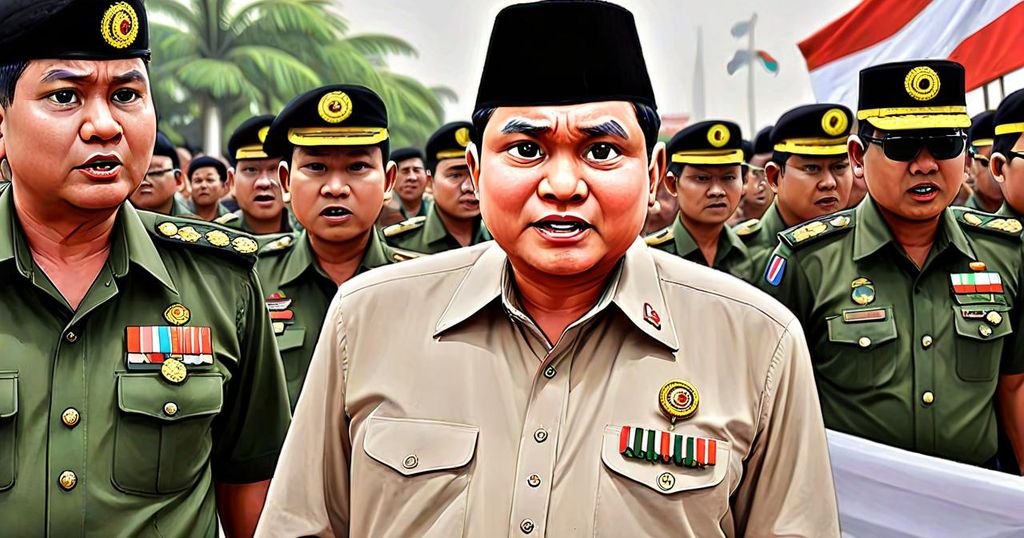There has been a noticeable shift in the perception of Prabowo Subianto, the Defence Minister of Indonesia, among the younger generation. Once a figure of fear, the former special forces commander, who has faced accusations of human rights violations, has now attracted attention for his softer and more relatable public image. Referred to as a “cuddly grandpa” and embraced by meme culture, the 72-year-old is gaining favor with young voters as Indonesia prepares for its upcoming elections on February 14.
While the younger demographic appears to be charmed by Mr. Prabowo’s transformation, there are concerns about his controversial past and its potential impact on the country’s future. The handling of human rights abuses and disappearances, for which he has been implicated, remains a point of contention. Furthermore, his alliance with the son of the current president as his running mate adds complexity to the political landscape.
In recent years, Mr. Prabowo has utilized social media to connect with a growing young voter population. His campaign has gained substantial traction online, particularly resonating with millennials and Gen Z. With a significant portion of the electorate influenced by social media, the digital sphere has become a crucial battleground for political messaging and engagement.
Mr. Prabowo’s commitment to addressing pressing issues such as unemployment and the cost of living has resonated with some voters, diverting attention from his controversial past. However, there are lingering concerns about his potential presidency, given the unresolved accusations and his unpredictable temperament.
The political resurgence and rebranding of Mr. Prabowo reflect a compelling shift in public perception and political strategy. As Indonesia’s political landscape continues to evolve, the upcoming elections carry significant weight and the potential for change for the nation.
Ultimately, Mr. Prabowo’s rise to prominence and the changing narrative surrounding him offer profound insights into the intersection of politics, public image, and generational perspectives within a democracy.
Source:
– BBC News

Leave a Reply